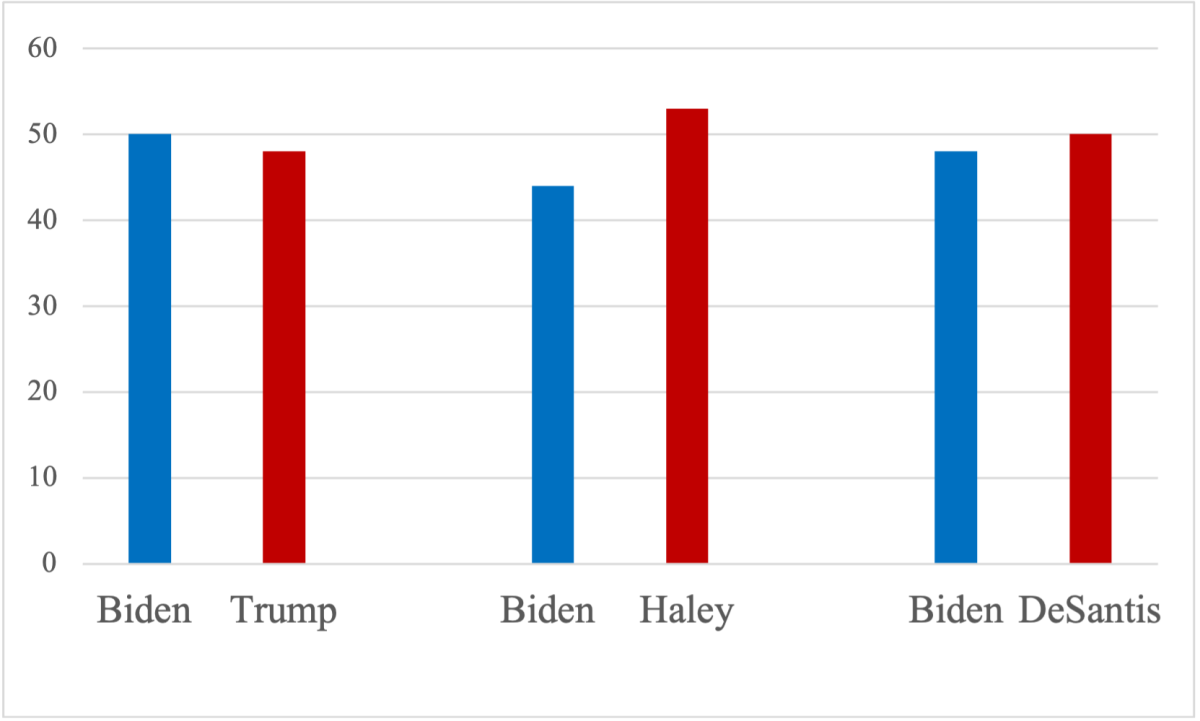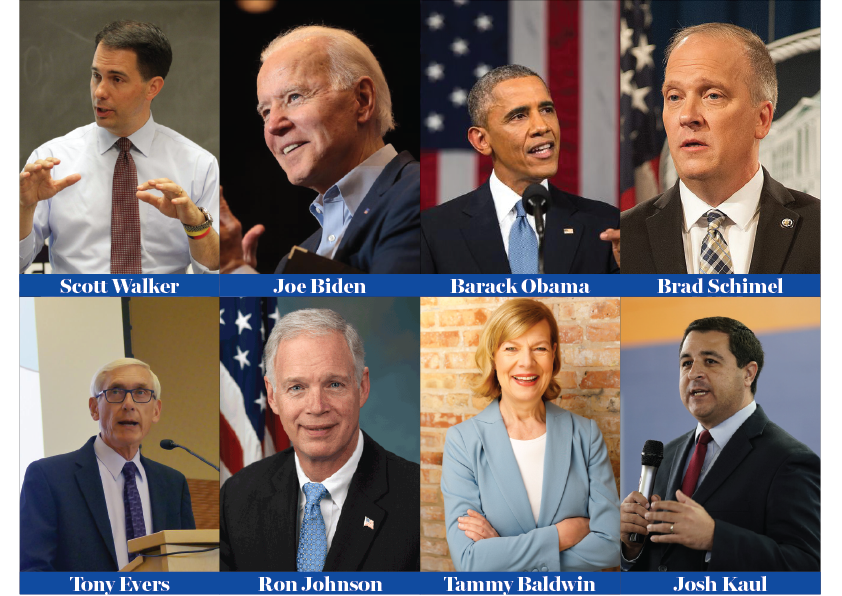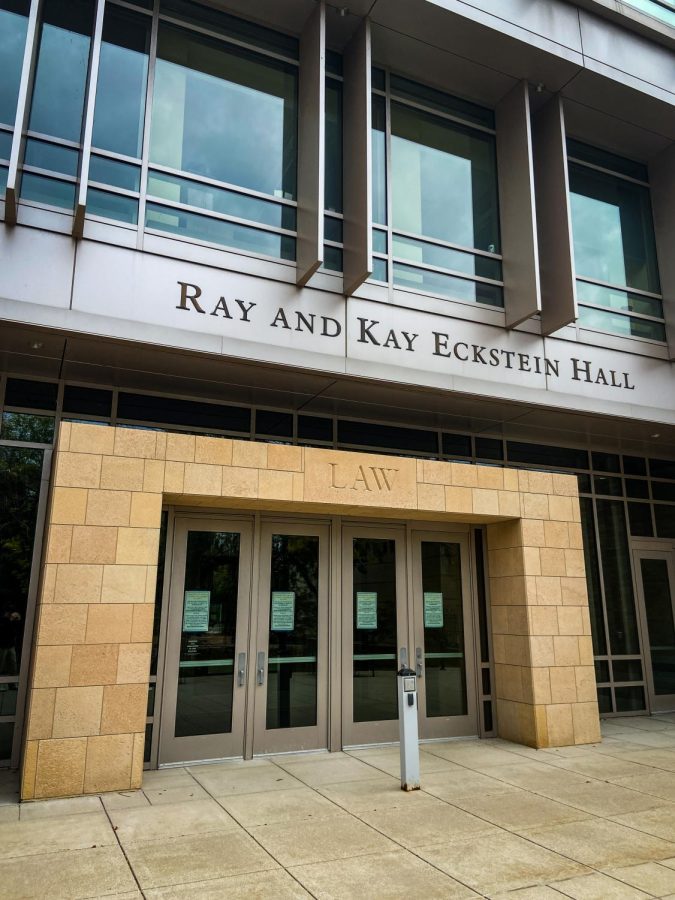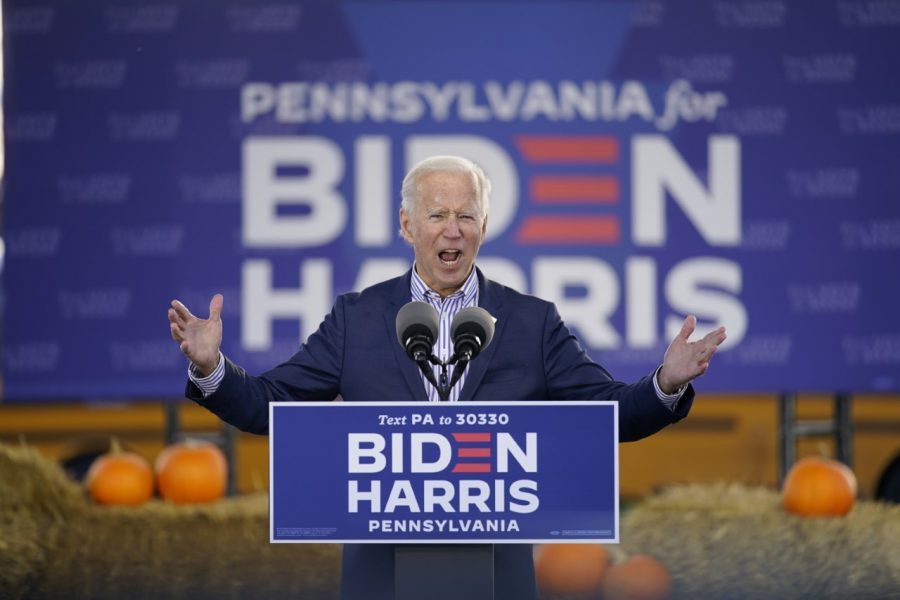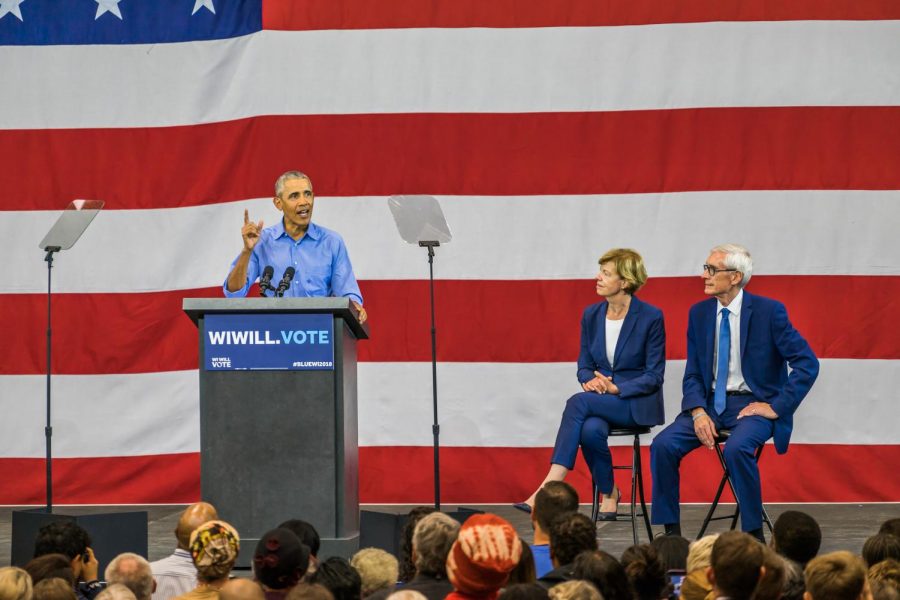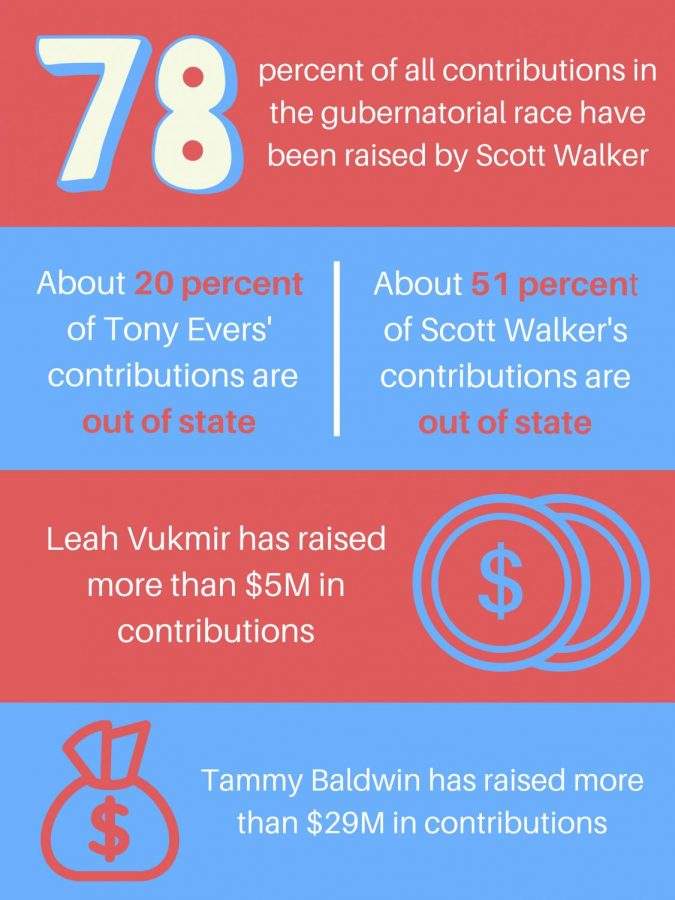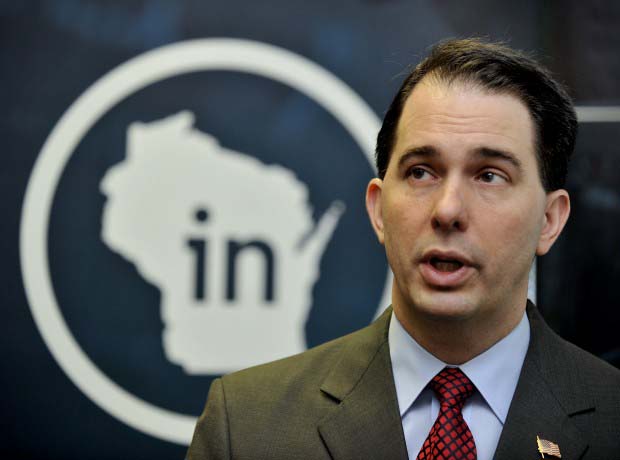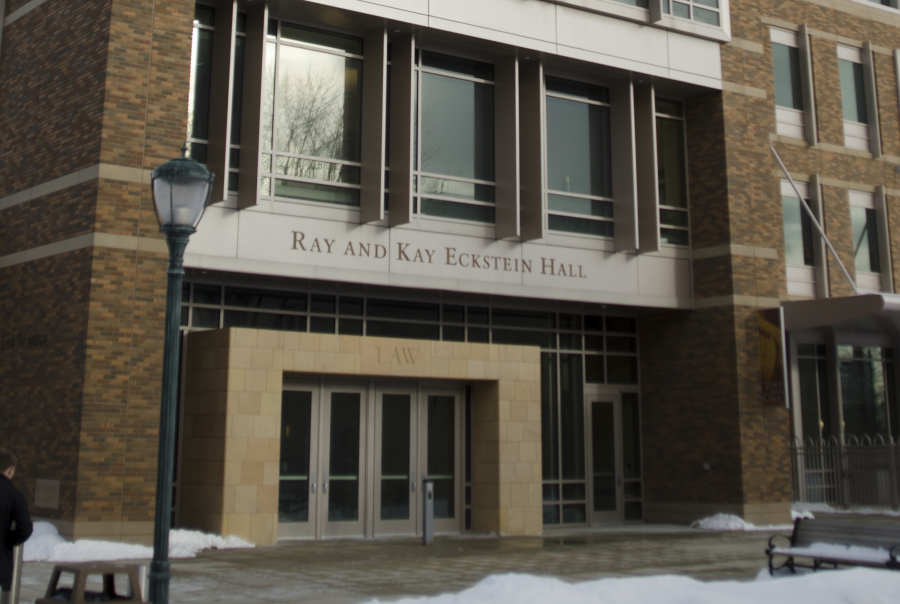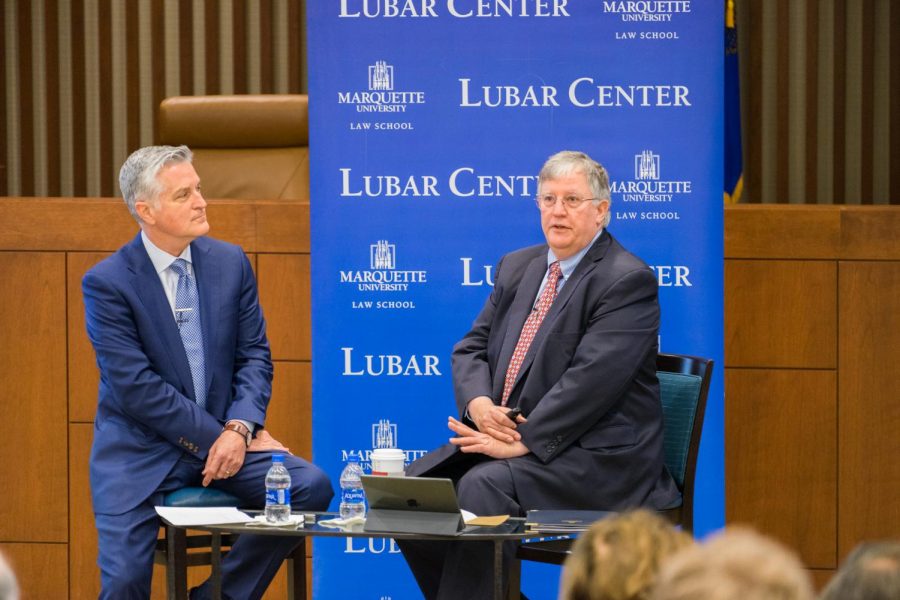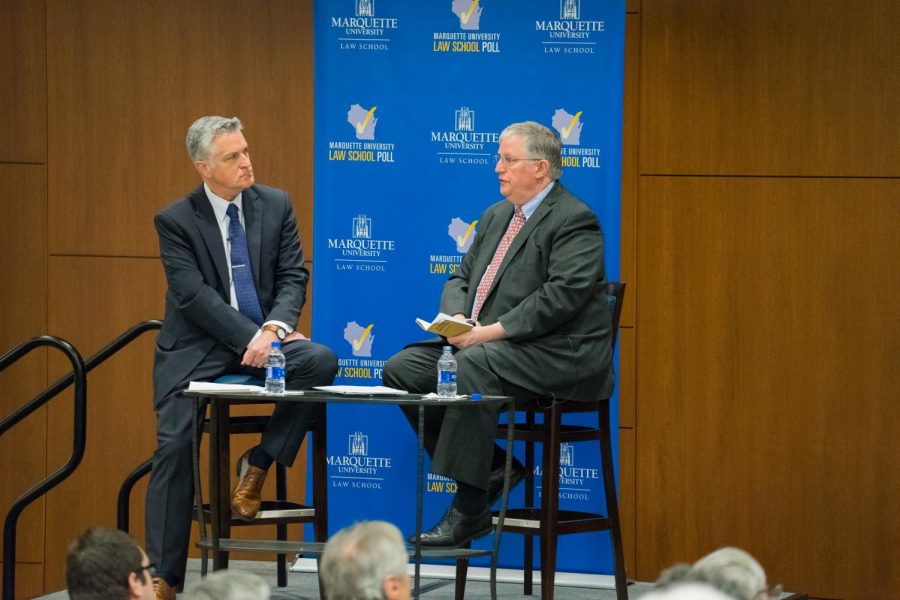Gov. Scott Walker faces a 48 percent approval and 49 percent disapproval rating, according to a poll released Tuesday by Public Policy Polling, which also found Walker’s approval rating lowest among 18- to 29-year-olds.
Charles Franklin, professor of law and public policy and director of the Marquette Law School Poll, said the security of Walker’s governor seat in his 2014 reelection is unknown.
“I think almost all political observers would say (Walker) comes in a strong position now, but there are potential vulnerabilities that could move him into a competitive race,” Franklin said. “We just have to stay tuned to see how that plays out.”
Franklin said the Marquette Law School plans to release at least one poll on Walker and Wisconsin policies before December.
Walker made signs of dropping his presidential bid in 2016 during visits to Iowa, the first in the nation caucus state, multiple times in the past few months.
“I think he’s in a strong position, but it’s going to be a very crowded field of strong Republic candidates, including our own Paul Ryan,” Franklin said.
When considering Walker as a presidential candidate, Franklin said it’s important to consider the mindsets of people living outside Wisconsin state lines.
“There’s been a bit of national polling on (potential 2016 presidential candidates,) some of which includes Walker and some that doesn’t,” Franklin said. “It’s a little hard for us to understand that for a lot of the country, he’s just one of those Midwest governors.”
Still, Franklin said Walker would have to win the governor’s race in 2014 before approaching the presidential election.
Amber Wichowsky, assistant professor of political science, said improving the economy should be Walker’s main focus if he wants to win reelection.
“To say that his odds of reelection are good is not to say that it won’t be a close race,” Wichowsky said.
Walker receives multiple advantages from being the incumbent candidate including name recognition and a sizable campaign fund, but that doesn’t rule out chances of the race becoming competitive.
“Walker’s reelection chances will likely hinge on how well he does among independents and political moderates in the state,” Wichowsky said. “These ‘swing’ voters are more likely to be sensitive to how well the economy is doing.”
Julia Azari, assistant professor of political science, pointed to specific issues that college students should pay attention to when considering whom to vote for next year, including how the state budget is managed and proposals for economic development.
“Students who plan on joining the teaching profession or another part of the public sector should look carefully at the Walker administration’s policies and decide what they think,” Azari said.
No Democratic candidates have officially put themselves in the running for governor, but when they choose to do so is an important decision that will impact the rest of the race.
“The Democratic Party has argued that there’s no advantage of declaring early – that will make them a target of attack,” Franklin said.
Mary Burke, a member of the Madison School Board, is a potential Democratic candidate for the 2014 race. She has gotten statewide attention as someone to watch as the race gets underway.
“As a candidate, (Burke) brings financial resources and those are undoubtedly important,” Franklin said. “She has business experience in a significant way, and she also has cabinet and philanthropy experience.”
Still, Franklin said a Democrat victory in 2014 will not mean major changes in Wisconsin.
“It will be very difficult for a Democrat to undo many of the major policy changes Walker made,” he added.
The Marquette Law School is already preparing for the 2014 election, and Franklin said there will be a significant increase in number of polls next year, but the specific amount has yet to be determined.

